
Diversity Science:
Emerging Perspectives in Psychology
February 14-16, 2018
The Department of Psychological Sciences at the University of Arkansas is delighted to host a specialty conference in Diversity Science. The goals of the conference are to:
- Highlight the importance of diversity for psychological science
- Provide exemplars of the integration of diversity considerations into scholarship
- Articulate a vision for the future of diversity science in psychology
Wednesday, February 14
| Time | Event | Location |
| 5 - 6pm | Cocktail Hour | Alumni House |
| 6 - 7pm |
Opening Talk by Victoria Plaut:
Diversity Science: Why and How Difference Makes a Difference
|
Alumni House |
| 7 - 9pm | Dinner | Alumni House |
Thursday, February 15
| Time | Event | Location |
| 8 - 9am | Continental Breakfast | Carnall Hall |
| 9 - 9:15am | Introductory Statements | Carnall Hall |
| 9:15 - 10:15am |
Ashby Plant:
Psychological Approaches to Interracial Contact and Identity.
|
Carnall Hall |
| 10:15 - 10:30am | Snacks & Break | Carnall Hall |
| 10:30 - 11:30am |
Monnica Williams:
Microaggressions: Measurement and Impact--Not Pseudoscience.
|
Carnall Hall |
| 11:30 - 12:30pm |
Noelle Hurd:
Applying a Strengths-Based Lens to Research with Marginalized Youth.
|
Carnall Hall |
| 12:30 - 1:45pm | Lunch | Carnall Hall |
| 1:45 - 2:45pm |
Vani Mathur:
Combating Multiple Levels of Suffering: Sociocultural and Social Neuroscientific Approaches
to Pain Disparities.
|
Carnall Hall |
| 2:45 - 3:45pm |
Doug Medin:
Who Owns Science, and What Is The Role of Diversity In Science.
|
Carnall Hall |
| 3:45 - 4pm | Break | Carnall Hall |
| 4 - 5pm | Breakout Session with all Speakers | Carnall Hall |
| 5 - 5:30pm | Wrap-up/Panel Discussion | Carnall Hall |
| 5:30 - 7pm | Happy Hour | Lambeth Lounge |
| 7 - 9pm | Dinner in Fayetteville | Carnall Hall |
Friday, February 16
| Time | Event | Presentations | Location |
| 8 - 8:30am | Continental Breakfast | Carnall Hall | |
| 8:30 - 9:30am |
Dr. Fuentes Workshop:
Exploring Diversity, Inclusion, and Equity Efforts in our Academic Setting: A Culture-Centered
Approach
|
TBD | |
| 9:30 - 10am | Break | ||
| 10 - 12pm | Dr. Fuentes Workshop Continued... | TBD | |
| 12 - 1pm | Lunch | ||
| 1 - 2pm | Dr. Fuentes Workshop Continued... | TBD | |
| 2 - 2:30pm | Break | ||
| 2:30 - 4:30pm | Dr. Fuentes Workshop with Graduate Students | TBD | |
| 4:30 - 5pm | Break | ||
| 5pm | Depart for Crystal Bridges | ||
| 5:30 - 7pm | Tour Crystal Bridges | ||
| 7pm | Dinner in Bentonville |
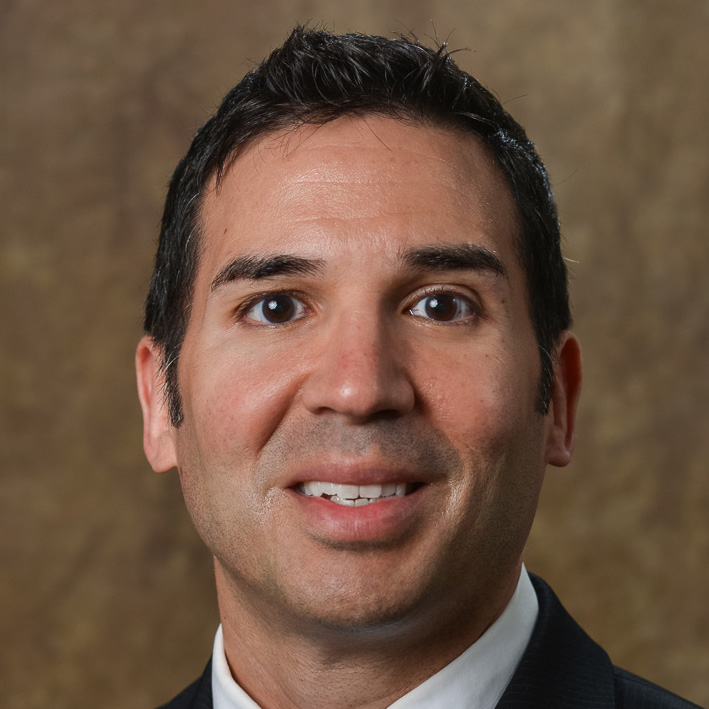
Milton Fuentes, Montclair State University
Workshop Title: Exploring Diversity, Inclusion, and Equity Efforts in our Academic Setting: A Culture-Centered Approach
Read Dr. Fuentes' BiosketchDr. Milton A. Fuentes received his MA in Psychology with a Latina/o Psychology focus from Montclair State University and his Psy.D. in clinical psychology from the Graduate School of Applied and Professional Psychology at Rutgers University. He completed a pre-doctoral fellowship in clinical and community psychology at Yale University and secured post-doctoral training in epidemiology at Columbia University. He is a founding member and former president of the Latino Psychological Association of New Jersey and the 2012 President of the National Latina/o Psychological Association. Dr. Fuentes' research interests are in the areas of Latina/o and multicultural psychology, child/ family psychology, pedagogy and motivational interviewing. He serves as a consultant to several programs, including the Puerto Rican Family Institute and the Violence Prevention Office of the American Psychological Association, where he serves as a Coordinator and Master Trainer for the ACT Raising Safe Kids program. Dr. Fuentes is currently a professor in the psychology department, director of the Research Academy for University Learning at Montclair State University, and is licensed to practice psychology in New Jersey and New York.
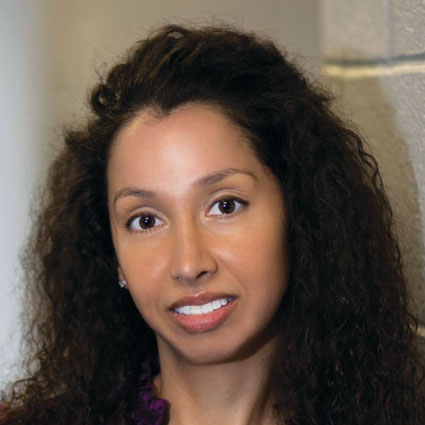
Noelle Hurd, University of Virginia
Talk Title: Applying a Strengths-based Lens to Research with Marginalized Youth
Read Dr. Hurd's Biosketch Watch Dr. Hurd's Talk Download the presentationDr. Noelle Hurd's research agenda has primarily focused on the promotion of healthy adolescent development among marginalized youth. Specifically, her work has focused on identifying opportunities to build on pre-existing strengths in youths’ lives, such as supportive intergenerational relationships. Using a resilience framework, she has assessed the potential of nonparental adults to serve as resources to marginalized youth, and she has investigated the processes through which these relationships affect a variety of youth outcomes (e.g., psychological distress, health-risk behaviors, academic achievement). Currently, she is investigating the role of contextual factors in promoting or deterring the formation of intergenerational relationships and shaping the nature of interactions between marginalized youth and the adults in their communities. She also is further examining the mechanisms that drive the promotive effects of natural mentoring relationships and developing an intervention focused on enhancing positive intergenerational relationships between adolescents and the nonparental adults in their everyday lives. She runs the Promoting Healthy Adolescent Development (PHAD) Lab at the University of Virginia. She is a current William T. Grant Scholar and a Spencer/National Academy of Education Postdoctoral Fellow. In 2015, she was recognized as a Rising Star by the Association for Psychological Science. In 2017, she received the Outstanding Professor Award from the UVA Department of Psychology. Her research is currently funded by the William T. Grant Foundation, the Institute of Education Sciences, and the National Science Foundation.

Vani Mathur, Texas A & M
Talk Title: Combating multiple levels of suffering: Sociocultural and social neuroscientific approaches to pain disparities.
Read Dr. Mathur's Biosketch Watch Dr. Mathur's Talk Download the presentationVani Mathur is an assistant professor in the Department of Psychology at Texas A & M University in College Station, Texas. She is currently part of the Social and Personality area within the Department of Psychology and is a member of the Institute for Neuroscience at Texas A & M. She earned her B.S. in Human Physiology from Boston University in Boston, Massachusetts in 2005, and both her M.S. and Ph.D. in Psychology at Northwestern University in Evanston, Illinois.
Dr. Mathur’s work focuses on understanding the sources of disparities in pain, and the specific mechanisms by which social and cultural factors alter pain experience and pain physiology. This research targets the problem of pain disparities from two directions – investigating the different ways social factors may influence one’s own pain, and also alter pain perception and empathy for others. To tackle these problems, her lab utilizes behavioral, psychophysical, and neuroimaging methodologies. In addition to her work on pain disparities, Dr. Mathur is also interested in individual differences in chronic pain and pain modulation, cross-cultural examinations of pain and empathy, and social environmental effects on health broadly defined.
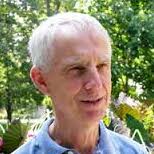
Doug Medin, Northwestern University
Talk Title: Who Owns Science, and What is the Role of Diversity in Science?
Read Dr. Medin's Biosketch Watch Dr. Medin's Talk Download the presentationDouglas Medin is a Louis W. Menk Professor of Psychology and a Professor in Education and Social Policy at Northwestern University. Best known for his research on concepts and categorization, his recent interests have extended to cross-cultural studies of biological categorization and reasoning, cultural and cognitive dimensions of moral reasoning and decision making, and culturally- and community-based science education. He served on the 2009 NRC committee on Informal Science Learning, is a recipient of the APA Distinguished Scientific Contribution Award, and is a member of the American Academy of Arts and Sciences, the National Academy of Sciences, and the National Academy of Education. He was honored in 2013 with the Association for Psychological Science William James award for lifetime achievements in psychology.
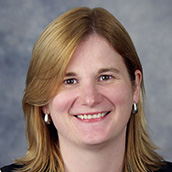
Ashby Plant, Florida State University
Talk Title: Psychological Approaches to Interracial Contact and Identity
Read Dr. Plant's Biosketch Watch Dr. Plant's Talk Download the presentationE. Ashby Plant is a professor of Psychology at Florida State University in Tallahassee, Florida. She is a social psychologist who conducts research concerning prejudice and intergroup relations. She earned her B.A. in Psychology and English from Oberlin College in Oberlin, Ohio in 1992. She received her Ph.D. in Social-Personality Psychology from the University of Wisconsin in Madison, Wisconsin in 2000 under the direction of Patricia G. Devine. Dr. Plant joined the faculty in the Department of Psychology at Florida State University in 2000. She has authored over 75 publications, and her papers have appeared in journals including the Journal of Personality and Social Psychology and Personality, Psychological Science, and Personality and Social Psychology Bulletin. Much of Dr. Plant’s work focuses on the regulation of prejudice, intergroup interactions, and the elimination of stereotypic responses. In order to improve relations between people of different racial, ethnic, religious, and social groups, she believes it is critical to understand the factors that contribute to tension and antipathy between groups as well as the factors that help to reduce these negative responses. She is interested in both the beliefs and motivations that people bring to intergroup settings as well as situational factors that can aid in the reduction of bias.
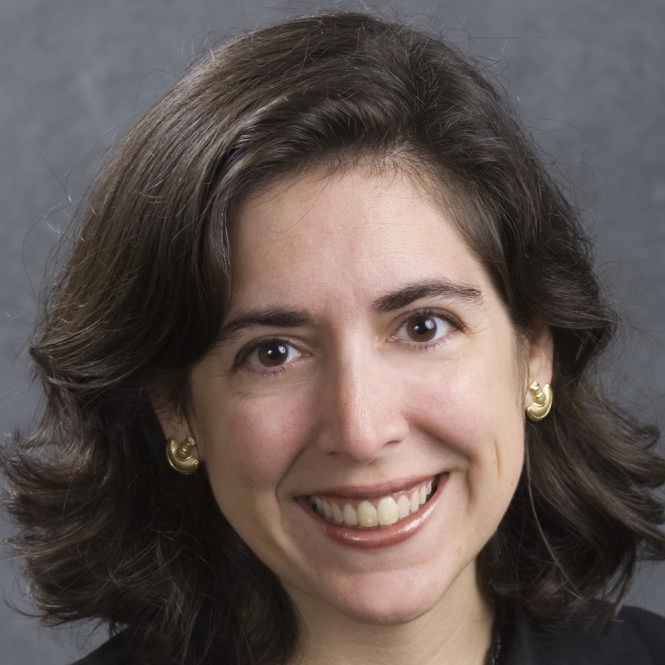
Victoria Plaut, University of California at Berkeley
Talk Title: Diversity Science: Why and How Difference Makes a Difference
Read Dr. Plaut's Biosketch Watch Dr. Plaut's TalkVictoria C. Plaut is Professor of Law and Social Science at the University of California, Berkeley, School of Law, and affiliated faculty in Psychology. She previously served as Associate Dean for Equity and Inclusion. Dr. Plaut’s research on diversity, culture, and inclusion aims to address the challenges and opportunities of working, living, and learning in diverse environments with a focus on incorporating psychological research into the design of institutions. Recent projects include studies related to resistance to diversity and inclusion policies, colorblind vs. multicultural models of diversity, models of deafness and disability, and diversity and inclusion in STEM fields, among others. She has related lines of research on cultural models of self, well-being, and relationship and on the psychology and law of immigration, property, and contracts. Dr. Plaut’s research has been published in her field’s top journals, such as Psychological Science and the Journal of Personality and Social Psychology. Her 2010 Psychological Inquiry target article, “Diversity Science: Why and how difference makes a difference,” is recognized as setting an agenda for psychological research on diversity and inclusion. Her research has been supported by the National Science Foundation, the National Institutes of Health, and private organizations. Dr. Plaut has consulted with a wide variety of organizations in legal, business, health care, technological, and educational settings and has contributed her expertise in amicus briefs to the U.S. Supreme Court. She obtained her Ph.D. in Psychology from Stanford, M.Sc. in Social Psychology from the London School of Economics, and B.A. in Psychology from Harvard.
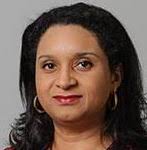
Monnica Williams, University of Connecticut
Talk Title: Microaggressions: Measurement and Impact- not Pseudoscience
Read Dr. Williams' Biosketch Watch Dr. Williams' Talk Download the presentationDr. Monnica T. Williams is a board-certified licensed clinical psychologist and Associate Professor at the University of Connecticut in the Department of Psychological Sciences and Department of Psychiatry. She is also Clinical Director of the Behavioral Wellness Clinic, where she provides supervision and training to clinicians for empirically-supported treatments. Prior to her recent move to Connecticut, Dr. Williams served as the Director of the Center for Mental Health Disparities at the University of Louisville in the Department of Psychological and Brain Sciences. Dr. Williams’ research focuses on African American mental health, culture, and psychopathology, and she has published over 90 scientific articles on these topics. Current projects include the assessment of race-based trauma, unacceptable thoughts in OCD, improving cultural competence in the delivery of mental health care services, and interventions to reduce racism. She also gives diversity trainings nationally for clinical psychology programs, scientific conferences, and community organizations. Dr. Williams is a member of the American Psychological Association (APA), having served as the diversity delegate from Kentucky for the APA State Leadership Conference for two consecutive years. She is the African American SIG leader for Association of Behavioral and Cognitive Therapies (ABCT), and she serves as an associate editor of The Behavior Therapist. She also serves on the editorial board ofCognitive Behaviour Therapy, and the Journal of Obsessive Compulsive and Related Disorders. She is a member of the Scientific Advisory Board of the International OCD Foundation, and is also the co-chair of the Diversity Counsel. Her work has been featured in several major media outlets, including NPR and the New York Times.
When: February 14 - 16, 2018
Where: University of Arkansas
Ana Bridges - Faculty
Lindsay Ham - Faculty
Scott Eidelman - Faculty
Ilana Berman - Graduate Student
Rachel Stevens - Graduate Student
David Sparkman - Graduate Student
Andrew Provensano - Graduate Student
Derrick Till - Graduate Student
Becca Campbell - Graduate Student
Roselee Ledesma - Graduate Student
Andrew Rodriguez - Graduate Student
Meredith Sourk - Graduate Student
- A Tribute To Florence Price: https://fulbright.uark.edu/florence-price
- Crystal Bridges Museum of Art: http://crystalbridges.org
- Walton Arts Center: http://
waltonartscenter.org/ - Theatre Squared: http://theatre2.org
- State Parks of Arkansas: http://www.
arkansasstateparks.com/ - Wild Wilderness Drive Through Safari (Drive-through zoo): http://www.
wildwildernessdrivethroughsafa ri.com/ - Eureka Springs: http://www.
eurekasprings.org/ - Fayetteville Farmer’s Market: http://www.
fayettevillefarmersmarket.org/ - Light of the Ozarks: http://
thelightsoftheozarks.com - Botanical Garden of the Ozarks: http://bgozarks.org
- Terra Studios: https://terrastudios.
com - Fayetteville Underground (Art Studios): http://www.
fayettevilleunderground.org - Bicycling in Fayetteville: http://www.
fayetteville-ar.gov/1495/ Bicycling